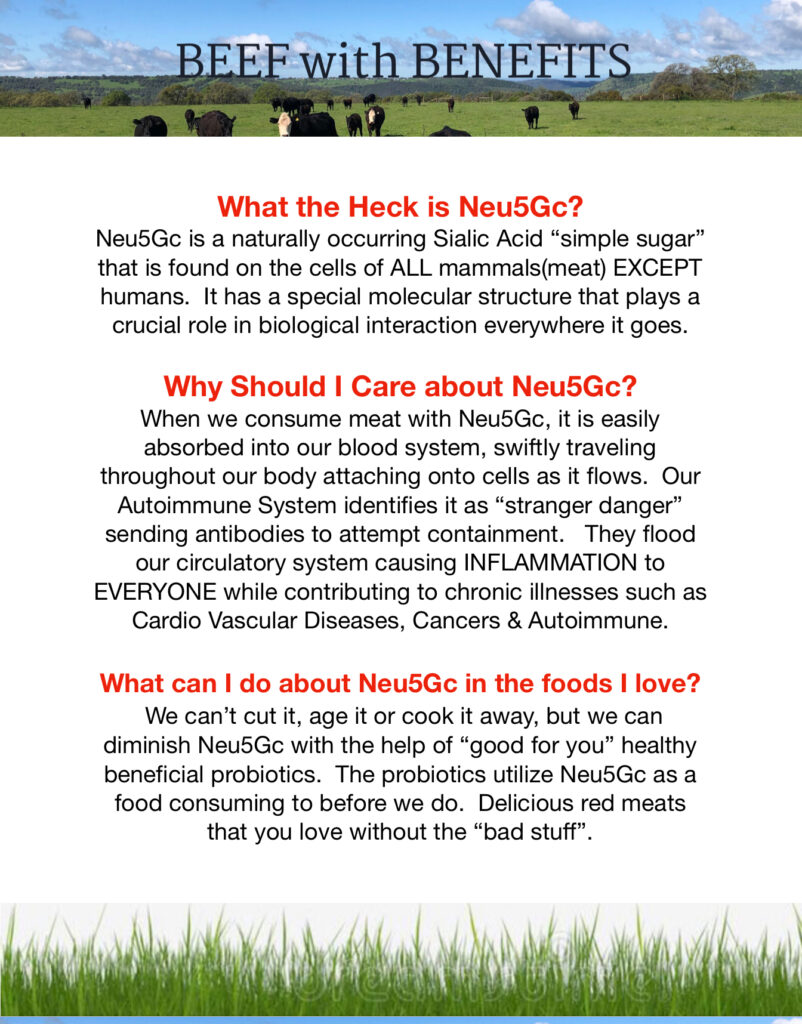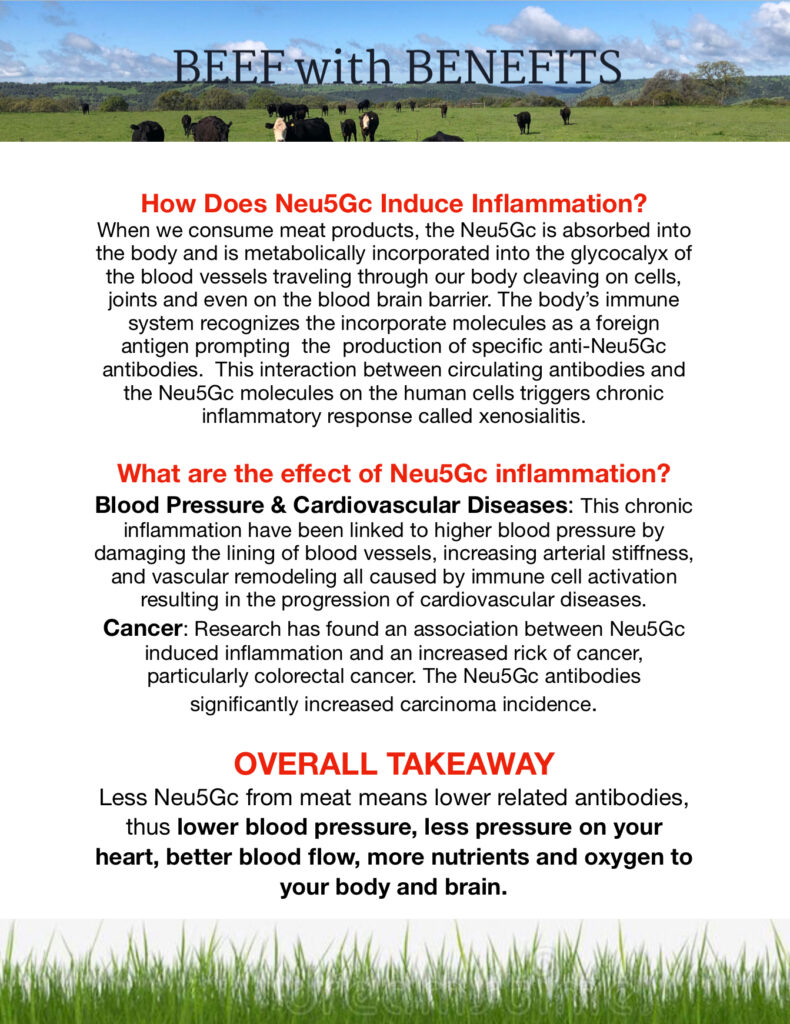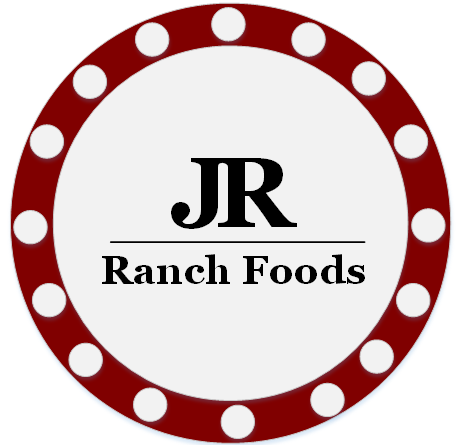WHAT THE HECK IS NEU5GC & WHY SHOULD I CARE??


WHAT IS NEU5GC AND WHY DO I CARE (long answer)?
Neu5Gc is simply, a very simple sugar called a monosaccharide. In scientific terms, Neu5Gc is a Sialic Acid, a member of a family of 9 carbon structured monosaccharides that are found on the surface of our cells. It differs from regular sugar because it contains a carboxyl group (COOH) in its molecular structure, which readily donates a hydrogen ion (H+) in solution, thus lowering the pH level on the host cell, playing a crucial role in biological interactions on the cell surface everywhere it goes.
This all sounds SUGARY but us humans cannot synthesize Neu5Gc but we easily absorb Neu5Gc from the foods we eat through our small intestine into our blood system, swiftly traveling throughout our body cleaving on cells as it flows. Our autoimmune identifies it is “stranger danger” sending antibodies to attempt containment. All these antibodies flood our circulatory system raising inflammation, blood pressure, triggering autoimmune, while providing a pathway for diseases to flourish.
So what you eat matters. ALL the Red Meats we love, contains “Bad for You” Neu5Gc, which triggers antibodies that contribute to Inflammation & Chronic diseases such as Colon & other types of Cancers, Cardio Vascular (CVD), Autoimmune & Covid diseases.
So how do we diminish the Neu5Gc and does it affect taste? We use natural Probiotic strains to culture the meat to diminish Neu5gc while supporting our gut biome. After culturing we slow cook the cuts to melt connective tissues for tenderness at low temperatures that preserve the natural juices. These low and slow cooking technique slightly brake down the proteins developing the rich UMAMI flavor and making the protein more digestible and bioavailable. The culturing and slow cooking create a delicious, wonderful, rich flavor!
What is culturing of meat?
JR Ranch has developed a proprietary Beneficial Probiotic culturing that reduces the monosaccharide Neu5Gc “bad stuff” that is in all mammal meat. The culturing is similar to the process of sour dough bread which develops the flavor naturally to enhance safety, shelf life, nutrition, flavor, and texture. This culturing acts as natural preservative and produces health-promoting compounds, offering a path to “functional” meat products with added health benefits and reduced reliance on chemical additives such as nitrates/nitrites chemicals. The result is an umami rich, beef flavor with natural preserved pink meat color.
Why is JR Ranch Products still pink after being fully cooked?
During the Beneficial Probiotic Culturing the pH of the meat is slightly raised which makes the myoglobin molecules more stable and less likely to denature and turn brown into hemichrome. Myoglobin is more nutritious than hemichrome due to its higher stability, better bioavailability of its iron content, and its role as a functional, native protein in muscle tissue. Hemichrome (brown meat) are associated with oxidative stress and can trigger the oxidation of other nutrients, such as lipids (fats), which may reduce the overall nutritional quality of the food.
What the heck is PhIPs and Why Should I Care?
PhIP is one of a group of compounds called heterocyclic amines (HCAs) that form when meat (beef, pork, poultry, etc.) is cooked at high temperatures—grilling, frying, or barbecuing can create more PhIP, especially in well-done or charred areas. PhIP is a chemical formed in heated meat that may contribute to cancer risk, but risk depends on how much and how you cook meat.
Why should you care: PhIP has been shown to cause cancer in animals at high doses. In humans, the evidence is mostly observational; some studies link higher intake of well-done or fried/grilled meats with certain cancers (e.g., colorectal, breast, prostate)
ALL JR Ranch Grass Fed Angus Beef products are produced at low USDA approved temperatures that avoid the forming of PhIP in the meats!
https://pmc.ncbi.nlm.nih.gov/articles/PMC2132437.
Additional Information on Neu5Gc
What is Neu5Gc and Why it Matters?
A red meat-derived glycan promotes inflammation and cancer progression | PNAS
Human uptake and incorporation of an immunogenic nonhuman dietary sialic acid – PMC https://pmc.ncbi.nlm.nih.gov/articles/PMC218710
